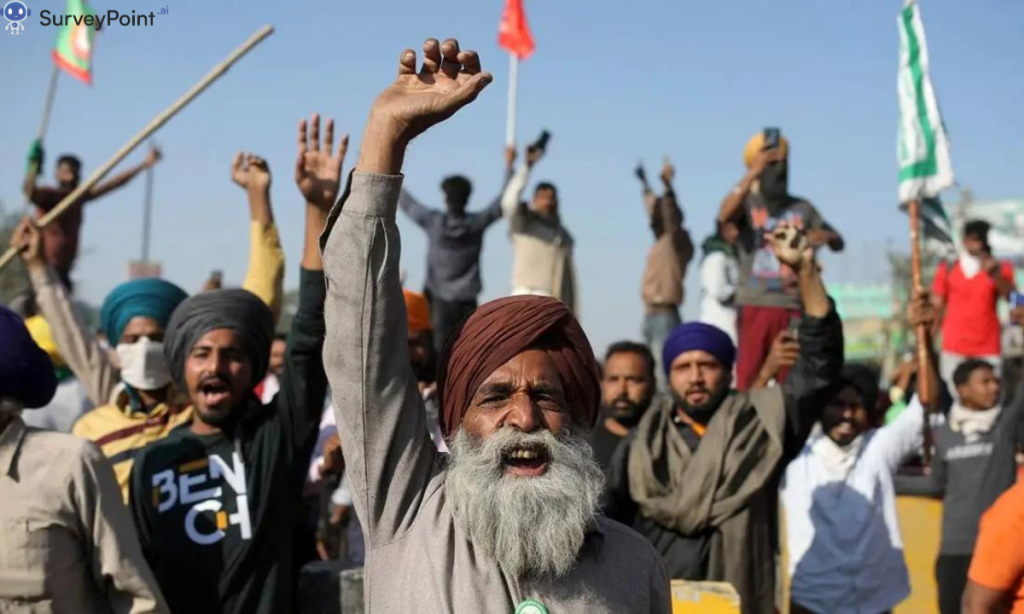
In a diverse and democratic country like India, government schemes often stir debate and controversy. While many initiatives aim to promote development and welfare, some face significant opposition from various sections of society. This blog explores a few such controversial government schemes that have sparked protests and debates, highlighting the need for reconsideration and reevaluation.
1. Farm Laws 2020– Government Schemes
The three farm laws passed in 2020 – the Farmers’ Produce Trade and Commerce (Promotion and Facilitation) Act, the Farmers (Empowerment and Protection) Agreement on Price Assurance and Farm Services Act, and the Essential Commodities (Amendment) Act – aimed to liberalize the agricultural sector. However, these laws faced massive opposition from farmers across the country.
- Concerns: Farmers feared that the laws would dismantle the Minimum Support Price (MSP) system, leaving them at the mercy of big corporations. The lack of a legal guarantee for MSP was a major point of contention.
- Protests: The protests, primarily centered in Punjab, Haryana, and Uttar Pradesh, saw thousands of farmers camping at Delhi’s borders for over a year.
- Outcome: The intense protests led to the eventual repeal of the farm laws in November 2021. This highlighted the need for more inclusive dialogue and stakeholder engagement in policy-making.
2. Citizenship Amendment Act (CAA) 2019– Government Schemes
The Citizenship Amendment Act (CAA), passed in December 2019, sought to provide Indian citizenship to persecuted minorities from Afghanistan, Bangladesh, and Pakistan, specifically targeting Hindus, Sikhs, Buddhists, Jains, Parsis, and Christians.
- Concerns: Critics argued that the CAA discriminated based on religion, violating the secular principles of the Indian Constitution. There were also concerns about the potential disenfranchisement of Muslims.
- Protests: The Act sparked widespread protests across the country, notably in Assam and other northeastern states, where people feared an influx of migrants. The protests turned violent in some areas, leading to clashes with law enforcement.
- Current Status: The implementation of the CAA remains a contentious issue, with several petitions challenging its constitutionality pending in the Supreme Court.
3. National Education Policy (NEP) 2020
The National Education Policy (NEP) 2020 introduced sweeping changes in the Indian education system, aiming to make it more holistic, flexible, multidisciplinary, and aligned with the needs of the 21st century.
- Concerns: Critics argued that the NEP promotes privatization and commercialization of education, which could lead to increased inequality. The emphasis on mother tongue instruction in the early years also raised concerns about the feasibility and preparedness of states to implement this change.
- Protests: Various student groups, educators, and opposition parties have raised objections, calling for a more equitable and inclusive approach to educational reform.
- Need for Reconsideration: Addressing the concerns around equity, access, and language policy is crucial to ensuring that the NEP benefits all sections of society.
4. Draft Environmental Impact Assessment (EIA) Notification 2020
The Draft Environmental Impact Assessment (EIA) Notification 2020 proposed changes to the process of environmental clearances for projects, aiming to streamline and expedite approvals.
- Concerns: Environmentalists and activists argued that the proposed changes would dilute environmental protections, reduce public participation, and legitimize violations. The provision allowing post-facto clearances for projects was particularly controversial.
- Protests: There were widespread protests, online campaigns, and legal challenges against the draft notification. Critics demanded stricter environmental safeguards and greater transparency.
- Call for Reconsideration: Ensuring that environmental regulations balance development with ecological sustainability is essential for India’s long-term well-being.
5. Labour Codes 2020
The Indian government introduced four labour codes in 2020, consolidating 29 existing labour laws with the aim of simplifying and improving the regulatory framework.
- Concerns: Trade unions and labour rights groups argued that the new codes dilute worker protections, make it easier to hire and fire workers, and weaken collective bargaining rights. The threshold for layoffs without government permission was also raised, sparking fears of job insecurity.
- Protests: Nationwide strikes and protests were organized by trade unions demanding the withdrawal of the codes and better protections for workers.
- Need for Dialogue: Re-evaluating the labour codes to ensure they protect workers’ rights while promoting economic growth is critical.
Conclusion
While government schemes aim to foster development and address various issues, the controversies surrounding some initiatives highlight the need for greater consultation and inclusivity in policy-making. By engaging with stakeholders, addressing legitimate concerns, and ensuring transparent processes, the government can build more effective and widely accepted policies. Reconsidering and refining these schemes is not just about addressing opposition but about ensuring that the policies serve the best interests of all citizens. For more information checkout- surveypoint.ai




